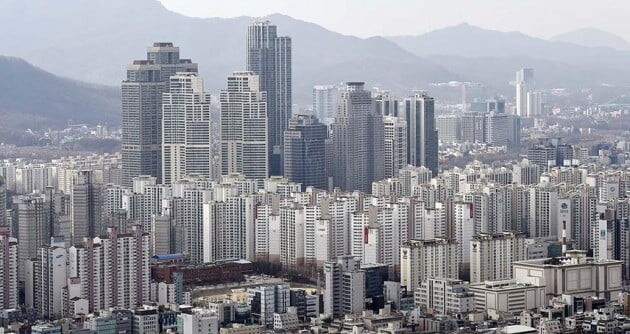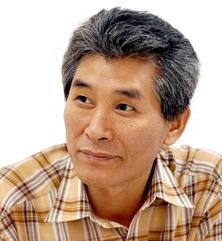hankyoreh
Links to other country sites 다른 나라 사이트 링크
[Column] Seoul’s tragedy, result of ultra-economic concentration

As was illustrated by the recent fire at a “gosiwon” (a cramped boarding house typically used by students that have since devolved into housing for impoverished classes) in which eighteen people were killed or injured, the housing conditions at gosiwon are far too awful to regard them as housing. There are no accurate statistics about the number of South Koreans who live in informal housing, including gosiwon and flophouses, as well as establishments open to the public such as comic book stores and bathhouses. Estimates go as high as 2.28 million households, but whether the actual number is more or less, it’s right to regard this as an issue of human rights that Korean society must not disregard.
In a paper titled “Why Gosiwons are More Expensive than the Samsung Tower Palace,” Ham In-seon, a professor of architecture at Hanyang University, calculated that rent costs 35,000 won (US$33) per square meter at Tower Palace and 41,000 won (US$39) per square meter at gosiwons. Ham explained gosiwons’ raison d'être and the source of their competitiveness as follows: “If people aren’t isolated from good jobs, information, culture and exchange and are guaranteed a short commute to work, they don’t take issue with finding personal space in a basement, on a rooftop or in a gosiwon.
Good locations for housing are as scarce as Gangnam is cramped, and stagnant economic growth and the rise of one-person and two-person households will further accelerate competition, causing gosiwons to remain in control of the market for some time to come.”
That’s right. The crux of the matter is access to jobs. Though we don’t have any precise statistics about the concentration of informal housing in the Seoul area either, what is implied by the fact that 80% of gosiwons are located there? Could it be a coincidence that this correlates to the city’s level of economic concentration? Could we solve the human rights issue of these “new residential refugees” without addressing this economic concentration?
Concentration of universities in Seoul exacerbates social hierarchy
A problem that’s just as severe as the economic concentration in the capital area is the concentration of universities there. Not all universities are created equal. Koreans place an absolute value on hierarchy, and nowhere is that more thoroughly realized than in the universities. Of the high-ranking universities where students compete the most fiercely for admission, more than 80% are concentrated in Seoul. This exactly mirrors the ranking of Seoul itself. Seoul uses these universities as a straw to suck up the money of students in the rest of the country. The suffering that students from the provinces—who account for about 35% of students in Seoul—have to face because of residential issues is too high a price to pay for this hierarchy.
This doesn’t only apply to the economy and universities. In all areas – including politics, society, culture and the media – the Korean provinces constitute an “internal colony.” We shouldn’t shirk the truth just because the word “colony” makes us uncomfortable. This isn’t a matter of regions but of class. Since the landed gentry who dominate public opinion in the provinces all have a house or two in Seoul, they don’t need to get worked up about this internal colonial system. They don’t see it as much of a problem – when real estate prices in Seoul soar, they invest or speculate there from a distance and send their children to live there.
The reason there was no major outcry from the provinces even when 75% of the government’s university enrollment cuts took place in the provinces is because of the assumption that they can send their own kids to Seoul. Since this internal colonial system only squeezes the poor people in both the Seoul area and the provinces, it’s not helpful to regard it as a regional issue.
S. Korea’s “equal-opportunity” is only a myth
Though an equal-opportunity society is an ideal to which everyone claims to subscribe, South Korea is a society that squashes equal opportunity. It’s misleading to proclaim equal opportunity while taking for a granted a society in which wealth, power and access to social and cultural opportunities are strictly determined by where one lives. The ultra-centralization around Seoul with the hierarchical society it implies breeds a winner-takes-all society operating in a zero-sum game in which one can only get ahead by stepping on other people, thereby forcing people to participate in the rat race. Those who fear such a life abandon the idea of even having children, which is expected to push the already nightmarish birth rate of 1.05 to below 1 this year.
But the really surprising thing is the misconception that this rat race has nothing to do with the ultra-centralization around Seoul. Choi Jang-jip, professor emeritus at Korea University, said that “one of the proofs that Korean society has been getting worse since democratization is the intensifying centralization of the capital region,” and such misconceptions have also played a role in that tragedy. The push to solve the problem by devolving power to the provinces at this point is likely to be a self-serving bid to duck responsibility for imbalanced development. I strongly recommend reading the recent book “The Provinces Are Ruined by Decentralization” by Ma Gang-rae.

In the ultra-centralized society of Seoul, schools are merely a method of determining rank without doing anything to promote social values. Elementary school students learn to discriminate against people who are lower on the totem pole based on the brand of apartment they live in and actively apply this way of thinking to other aspects of life. In such a situation, it’s impossible to fix not only a birth rate dipping below 1 but also other major problems in our society, from the privatization of politics to the high-handed behavior of powerful people. The slogan of the ultra-centralization around Seoul might as well be “if you don’t think it’s fair, move up in the world.”
By Kang Jun-man, professor of media and broadcasting at Chonbuk National University
Please direct comments or questions to [english@hani.co.kr]

Editorial・opinion
![[Guest essay] Maybe Korea’s rapid population decline is an opportunity, not a crisis [Guest essay] Maybe Korea’s rapid population decline is an opportunity, not a crisis](https://flexible.img.hani.co.kr/flexible/normal/500/300/imgdb/original/2024/0430/9417144634983596.jpg) [Guest essay] Maybe Korea’s rapid population decline is an opportunity, not a crisis
[Guest essay] Maybe Korea’s rapid population decline is an opportunity, not a crisis![[Column] Can Yoon steer diplomacy with Russia, China back on track? [Column] Can Yoon steer diplomacy with Russia, China back on track?](https://flexible.img.hani.co.kr/flexible/normal/500/300/imgdb/original/2024/0430/1617144616798244.jpg) [Column] Can Yoon steer diplomacy with Russia, China back on track?
[Column] Can Yoon steer diplomacy with Russia, China back on track?- [Column] Season 2 of special prosecutor probe may be coming to Korea soon
- [Column] Park Geun-hye déjà vu in Yoon Suk-yeol
- [Editorial] New weight of N. Korea’s nuclear threats makes dialogue all the more urgent
- [Guest essay] The real reason Korea’s new right wants to dub Rhee a founding father
- [Column] ‘Choson’: Is it time we start referring to N. Korea in its own terms?
- [Editorial] Japan’s rewriting of history with Korea has gone too far
- [Column] The president’s questionable capacity for dialogue
- [Column] Are chaebol firms just pizza pies for families to divvy up as they please?
Most viewed articles
- 1‘We must say no’: Seoul defense chief on Korean, USFK involvement in hypothetical Taiwan crisis
- 2After election rout, Yoon’s left with 3 choices for dealing with the opposition
- 3Why Kim Jong-un is scrapping the term ‘Day of the Sun’ and toning down fanfare for predecessors
- 4First meeting between Yoon, Lee in 2 years ends without compromise or agreement
- 5Two factors that’ll decide if Korea’s economy keeps on its upward trend
- 6Noting shared ‘values,’ Korea hints at passport-free travel with Japan
- 7Under conservative chief, Korea’s TRC brands teenage wartime massacre victims as traitors
- 8AI is catching up with humans at a ‘shocking’ rate
- 9Months and months of overdue wages are pushing migrant workers in Korea into debt
- 10[Guest essay] Maybe Korea’s rapid population decline is an opportunity, not a crisis